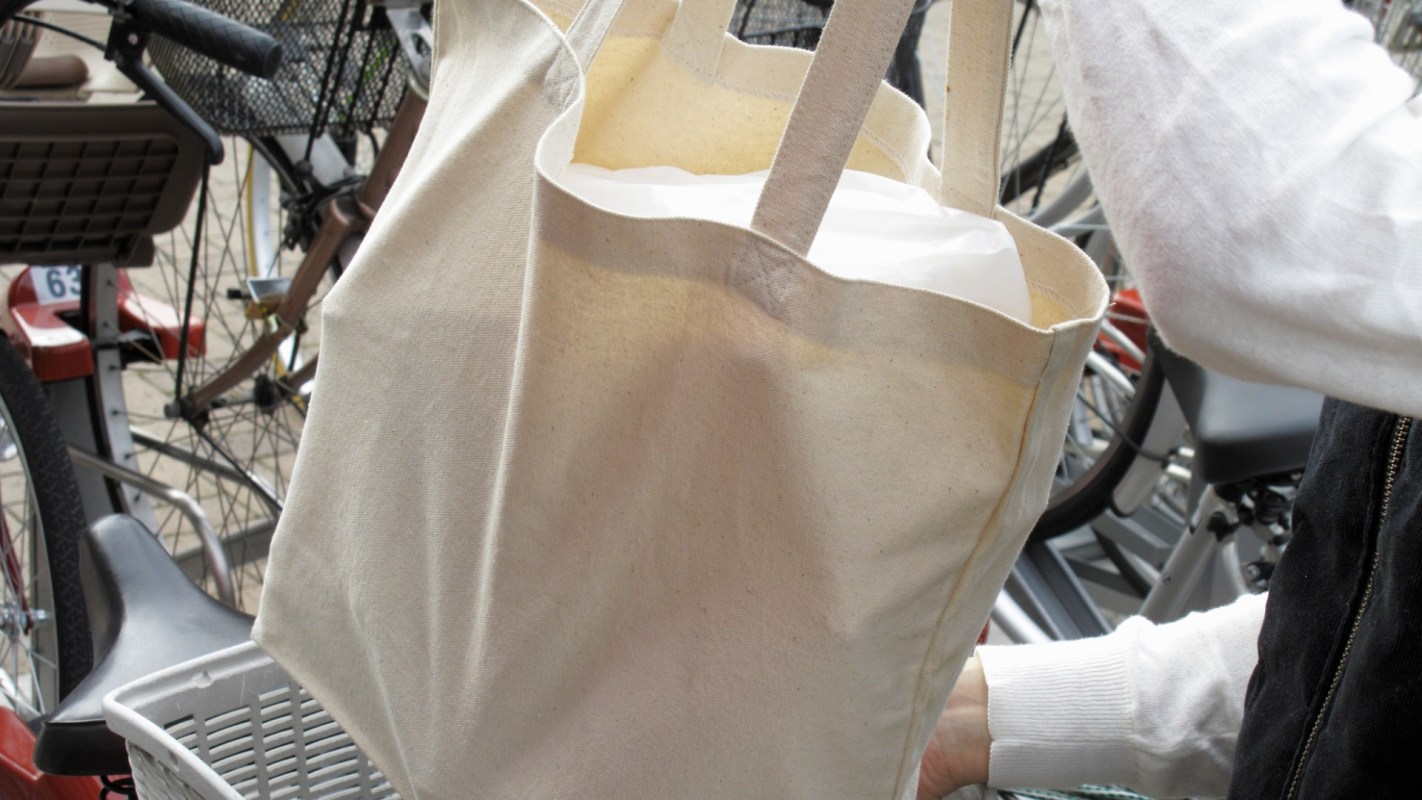As we try to end our reliance on single-use plastics, many shoppers and brands have turned to reusable grocery bags. But just how sustainable are these reusable alternatives?
Plastic vs. reusable bags
It's no secret that the flimsy plastic bags many grocery store chains use aren't good for the environment. After one use, many of them end up in landfills, where they can take 1,000 years to degrade. Those that don't end up in landfills often get clogged in our waterways or snagged in tree branches, posing a threat to local wildlife.
To cut down on waste, some grocery store chains even offer shoppers reusable bags instead of plastic bags. But these reusable bags have a cost of their own.
How reusable bags affect the environment
Though they reduce waste, reusable bags have, by some assessments, a higher carbon footprint than single-use plastic bags. Many reusable shopping bags are simply made of thicker plastic than their single-use counterparts, so they can be more harmful to the environment if they're not reused.
Unfortunately, many shoppers also aren't reusing their reusable bags. Instead of offering single-use plastic bags, some supermarkets now sell cheap reusable bags for their shoppers. Greenpeace reported that, in 2019, the average U.K. household purchased more than one reusable bag a week instead of using the reusable bags they already owned.
Reusable cotton bags pose their own problems. The cotton industry uses a lot of water, pesticides, and fertilizer. Though cotton bags don't cause plastic pollution the same way single-use bags do, the chemicals required to grow cotton conventionally can pollute soil and water and cause harmful air pollution.
"There will always be cases where we forget our [reusable] bags at home. We should try not [to] do that but when we do, we need to buy a bag. And if we then have already too many durable bags at home, it would be better from a climate perspective, at least, to buy a single-use paper or plastic bag," said Tomas Ekvall, one of the authors of the United Nations Environmental Programme's 2020 report on single-use plastic bags and their alternatives.
How often should you use reusable bags?
Reusable bags are a relatively sustainable choice as long as you do just that: reuse them. The more you reuse your bags, the better for the environment they are. Thicker reusable bags made of polypropylene must be used an estimated 10 to 20 times for them to be more sustainable than single-use plastic bags, while thinner reusable bags made of polyethylene only need to be used five to 10 times. Cotton bags, meanwhile, must be used 50 to 150 times.
The bottom line is that, instead of buying new bags, you should reuse whatever reusable bags you have as often as possible. That way, you keep single-use plastic bags out of our landfills and ecosystems without clogging up your closet with yet another reusable bag that took resources to make.
Join our free newsletter for easy tips to save more, waste less, and help yourself while helping the planet.









